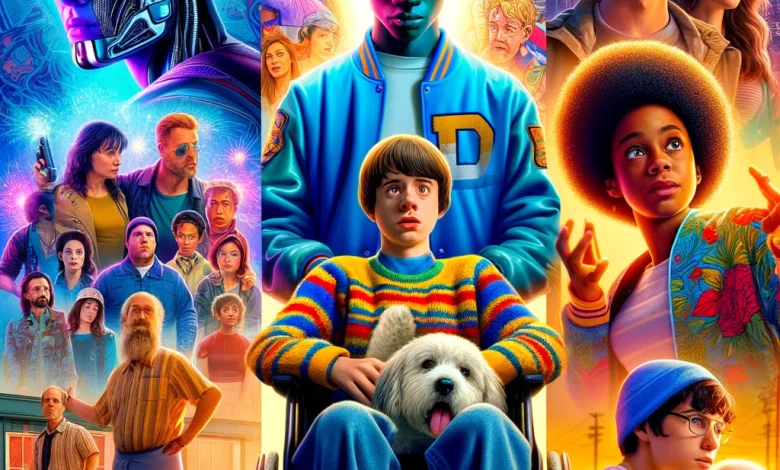
Netflix Shows with Disabled Actors and Characters – updated for 2024
Inclusive Storytelling on the Rise
Netflix is championing disability representation with a diverse array of shows and films featuring disabled characters and actors. From groundbreaking documentaries like “Crip Camp: A Disability Revolution” to compelling series such as “Raising Dion” and “Atypical,” these stories not only entertain but also educate and show real life. This guide delves into how Netflix’s commitment to inclusivity is shaping the media landscape, offering viewers authentic portrayals of disabled experiences. Discover the shows that are setting new standards for representation and why they matter:
Introduction: A New Era of Disability Representation on Netflix
Netflix has made significant strides in recent years to improve disability representation in its original programming. From groundbreaking documentaries to compelling dramas, the platform is showcasing more stories that reflect the diverse experiences of disabled people.
This commitment is part of a broader industry trend towards inclusivity, but Netflix stands out for its proactive approach in both casting and production.
Key Takeaways about Disability Representation on Netflix
| Point | Detail |
|---|---|
| Introduction | Overview of Netflix’s commitment to disability representation |
| New Shows | Highlighting recent additions featuring disabled characters |
| Behind the Camera | Focus on disabled talent in production roles |
| Viewer Impact | Reactions and influence on disabled audiences |
| Call to Action | Encouragement to support and recommend these shows |
New Shows Featuring Disabled Characters
Bodies (2023-2024)
Bodies is a science fiction series that follows detectives from different time periods as they investigate a mysterious murder. One of the key characters, DC Maplewood, is portrayed by Shira Haas, an actress with a disability. The show not only integrates disability into its narrative but also explores themes around the pressure to “fix” disabilities and the use of futuristic technology by disabled characters.
Fool Me Once (2024)
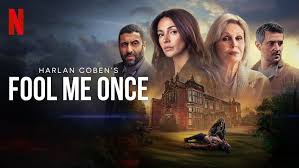
In the British series Fool Me Once, Netflix has taken a revolutionary step by casting disabled actors in various minor roles. This approach normalises the presence of disabled people on screen and offers a fresh perspective on disability representation. By including disabled actors in the background and supporting roles, the series reflects a more realistic and inclusive world.
Monarch: Legacy of Monsters (2024)
While not exclusively a Netflix original, Monarch: Legacy of Monsters on Apple TV+ includes a diverse cast featuring disabled actors. This inclusion highlights the growing trend across streaming platforms to represent disability authentically. The series showcases disabled characters in significant roles, contributing to the broader narrative without focusing solely on their disabilities.
Raising Dion (2019-2022)
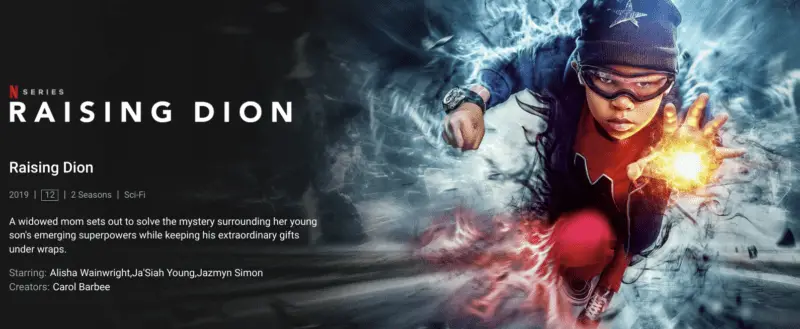
Raising Dion
Raising Dion is about a young boy called Dion who has ADHD and chronic asthma. Following the death of his father, he is transferred to a new school where he becomes best friends with Esperanza, who is a wheelchair user.
She is played by Sammi Haney, a young actress with osteogenesis imperfecta. The show not only brings visibility to osteogenesis imperfecta but also presents a positive portrayal of friendship and resilience. The creators of the show say that she secured the part thanks to her savvy, positive and humorous personality rather than just for her disability.
Together they try navigating an inaccessible world and soon discover Dion has superpowers, which he cannot control but tries to use for good and not evil.
Raising Dion cast and production
Raising Dion is based on the comic book series written by Dennis Liu, who also co-created the Netflix series with Carol Barbee.
Dion is played by 8-year-old Ja’ Siah Young who is not known to have ADHD or chronic asthma.
Crip Camp: A Disability Revolution (2020)
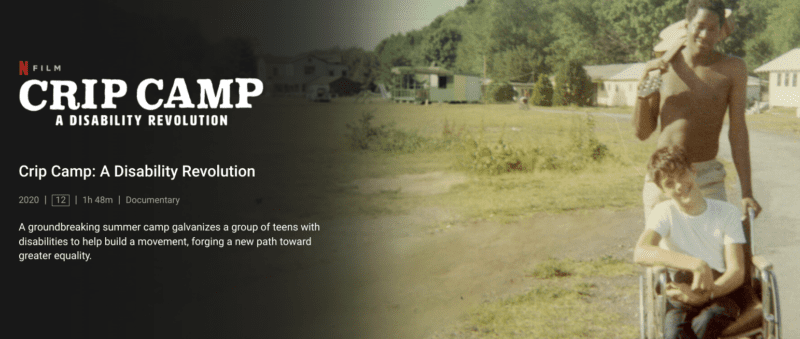
Crip Camp: A Disability Revolution is an award-winning documentary that tells the story of a groundbreaking summer camp for disabled teens in the 1970s. Co-directed by former camper Jim LeBrecht, the film highlights the camp’s role in sparking the disability rights movement and showcases the power of community and activism. Read a detailed review on Crip Life and find the documentary on Netflix.
Locke and Key

Locke & Key features Eric Graise, an actor and double amputee, as Logan Calloway. Logan’s character is seamlessly integrated into the series, demonstrating how disability can be a part of a character’s identity without defining their entire narrative.
Some key details about Logan Calloway and Eric Graise’s role:
– Eric Graise, a bilateral amputee actor, plays the role of Logan Calloway in Locke & Key. Graise was born missing fibula bones in his legs, leading to the amputation of both legs from the knee down when he was very young
– The character of Logan Calloway was created specifically for the TV adaptation and does not appear in the original Locke & Key comic books. He is a standalone character in the show.
– Logan is first introduced keying the car of another character for parking in a handicap spot. When asked by Tyler Locke why he is wearing shorts in winter, Logan humorously responds “My legs look cold to you?”. His disability is never explained in the show.
– Logan’s disability does not define his character – he is portrayed as a charismatic leader among the other teen characters. His amputation is not central to the plot[.
– Eric Graise has advocated for more representation of actors with disabilities in major roles, hoping to see disabled characters in superhero franchises as well[1][7]. His role as Logan Calloway was celebrated for authentic casting of a disabled actor[8].
While not a main character, the inclusion of Logan Calloway played by double amputee Eric Graise was a notable example of disability representation in the Locke & Key TV series. His character was added to the adaptation and portrayed a person with a disability without making it the sole focus of his storyline.
Behind the Camera: Promoting Disabled Talent
Netflix’s efforts extend beyond on-screen representation. The platform is committed to promoting disabled talent behind the camera as well. This includes hiring disabled writers, directors, and producers who bring authentic perspectives to their projects. Such representation is vital for creating nuanced and accurate portrayals of disabled experiences.
BBC and Netflix Disability Partnership – Where are all the shows?
Announced in 2021, the BBC and Netflix disability partnership is a landmark five-year collaboration aimed at developing new shows featuring disabled talent.
While this initiative marks a significant step towards inclusivity, it has faced some criticism for its slow progress. As of 2024, although several dramas are in funded development, no specific titles have been officially announced.
This delay raises concerns about the pace and efficiency of implementing such well-intentioned projects. Additionally, the partnership’s success will ultimately depend on its ability to deliver authentic and diverse disability representation both in front of and behind the camera. To truly make a difference, this collaboration needs to prioritize actionable outcomes and transparent reporting on its achievements and challenges.
Visionary Fellowship Program
Netflix’s collaboration with the Inevitable Foundation has resulted in the Visionary Fellowship, a program launching in 2024 to support disabled filmmakers. This year-long initiative provides funding, mentorship, and industry access, aiming to empower disabled creatives to tell their own stories. Such initiatives are crucial for fostering a more inclusive media landscape.
Impact on Viewers: Authentic Representation Matters
The authentic portrayal of disabled characters has a profound impact on viewers, especially disabled audiences who see their lives reflected on screen. Social media reactions often highlight the joy and validation that comes from seeing relatable characters and stories. This representation helps to challenge stereotypes and fosters a greater understanding of disability.
Viewer Reactions
Disabled viewers have expressed appreciation for Netflix’s efforts, noting that seeing characters like DC Maplewood in Bodies or the cast of Fool Me Once makes them feel seen and valued. These shows not only entertain but also educate the broader public about the realities of living with a disability.
Call to Action: Support and Recommend
To continue this positive trend, it’s important for viewers to support and recommend shows featuring authentic disability representation. By watching these titles and sharing their own favourite examples, audiences can help to ensure that such programming remains a priority for Netflix and other streaming platforms.
In conclusion, Netflix’s growing commitment to disability representation is paving the way for a more inclusive media landscape. From new shows featuring disabled characters to initiatives that promote disabled talent behind the scenes, the platform is making significant strides. As viewers, we have the power to support these efforts by engaging with and promoting content that reflects the diversity of human experiences.
Original post from 2019 retained as part of our Archive:
Netflix is one of the largest online streaming platforms in the world with thousands of original TV series and films to binge-watch. Here at Disability Horizons, we’ve rounded up eight of the best Netflix Original shows and films with disabled actors and characters.
Special
Special is a comedy series that tells the story of Ryan, a 28-year-old gay man with cerebral palsy. He goes in search of independence by moving out of his mum’s house and getting an internship at an online publication.
When Ryan starts his internship, his colleagues think his dexterity issues and the way he walks were caused by a car accident and not cerebral palsy.
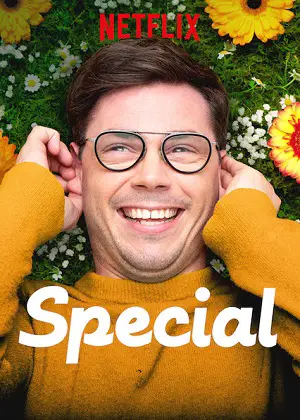
Ryan continues to keep quiet about his cerebral palsy and tries to embark on a normal life, creating content at work, making friends, going to parties, dating and having sex.
Special cast and production
Ryan is played by actor Ryan O’Connell, who is gay and has cerebral palsy. He also wrote and executively produced the series.
Special is based on Ryan’s memoir I’m Special: And Other Lies We Tell Ourselves, which was published in 2015.
Check out Emma Purcell’s review How is disability represented in the Netflix series ‘Special’? on her blog Rock For Disability.
The first series of Special is available to watch on Netflix and series two will be coming soon.
Atypical
Atypical is a family drama and comedy series that follows the everyday life of autistic teenager Sam Gardner and his family.
As Sam sets off on his journey to find love and independence, his parents and sister are also experiencing changes in their own lives.
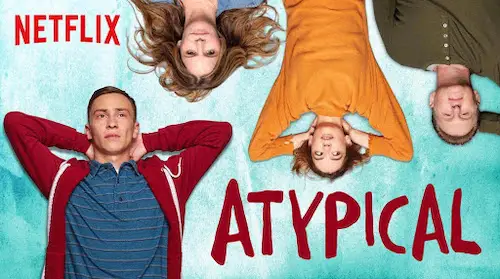
Atypical cast and production
Sam is played by non-autistic actor Keir Gilchrist, which has sparked mixed reactions from viewers.
Netflix told Teen Vogue that Anthony Jacques, who plays Sam’s friend Christopher in one episode, has autism.
The creator Robia Rashid also said that several crew members have autistic family members.
However, in series two, the show created five new characters as part of Sam’s peer support group, all of whom are played by actors on the spectrum.
Netflix also indicated that it worked with David Finch, who is himself on the spectrum, and authored the memoir The Journal of Best Practices, to help ensure an accurate representation of autism on the show.
Series one to three of Atypical is available to stream on Netflix with the fourth and final series due to be released later in 2021.
The Healing Powers of Dude
The Healing Powers of Dude is about 11-year-old Noah, who has social anxiety disorder. After a few years of being homeschooled, he attends middle school with the support of his emotional therapy dog Dude.
Noah manages to make friends, which includes a girl called Amara, who uses a powered wheelchair.
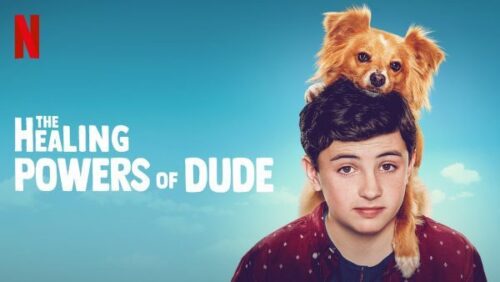
Throughout the series, he overcomes many life challenges, including attending classes, doing presentations, taking the bus, standing up to bullies, attending parties and performing on stage, all of which he achieves thanks to the support of Dude.
The Healing Powers of Dude cast and production
The Healing Powers of Dude was co-created by Erica Spates and Sam Littenberg-Weisberg. The character of Noah, played by Jace Chapman, was based on their own personal experience with social anxiety disorder.
Noah’s friend, Amara, is played by Sophie Kim, who has Ullrich congenital muscular dystrophy, a condition that causes weakness in the skeletal muscles.
The creators agreed it was important to include disability representation in the show by casting a disabled actress.
The Healing Powers of Dude is available to watch on Netflix now.
The Fundamentals of Caring
The Fundamentals of Caring is a Netflix Original film that tells the story of Ben, who encounters a personal tragedy and becomes a carer for 18-year-old Trevor, who has Duchenne muscular dystrophy.
The two of them embark on a road trip together across America, in which their perspectives on life are changed and they begin to understand the importance of hope and friendship.
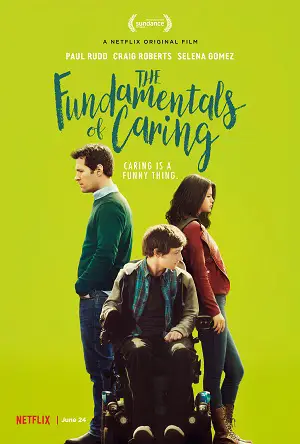
The Fundamentals of Caring cast and production
This film was based on the book The Revised Fundamentals of Caregiving by Jonathon Evison, who like Ben, has dealt with the loss of a family member and also worked as a carer.
Disabled teenager Trevor is played by non-disabled actor Craig Roberts. This caused some criticism among disabled communities, but Craig argued that he had researched muscular dystrophy by speaking to others living with the condition.
You can watch The Fundamentals of Caring on Netflix.
Stranger Things
Stranger Things is a science-fiction, fantasy, horror series set in the 80s in the small town of Hawkins, where a chain of suspicious events result in supernatural forces and secret government agencies invading the town.
It is up to a group of teenagers and a local sheriff to find out the truth of these terrifying incidents and save the town of Hawkins.
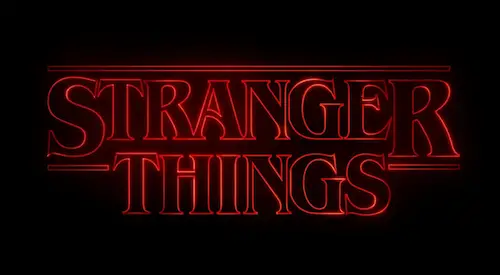
Stranger Things cast and production
Stranger Things has received critical acclaim and numerous awards, including six Emmys and a Critics Choice Television Award.
One of the teenage boys in the show, Dustin, is played by Gaten Matarazzo, who has a rare genetic condition called cleidocranial dysplasia (CCD), which affects teeth and bones, such as the skull, face, spine, collarbones and legs.
Gaten’s condition is visibly noticeable as he has missing teeth and a lisp. With the exception of school bullies naming Dustin “toothless”, his condition is mostly unrelated to the story and he is simply another teenager trying to fight the paranormal monsters of evil.
You can watch the first three series of Stranger Things on Netflix and the fourth and final series will be coming soon.
Feel the Beat
After failing to find success on Broadway, April returns to her hometown and reluctantly takes a job training a misfit group of young dancers for a big competition.
One of the young dancers is a deaf girl called Zuzu. She proves to April that deaf people can dance by feeling the vibrations of the music.
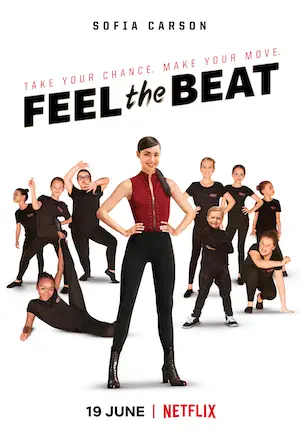
Feel the Beat cast and production
Zuzu is played by deaf actress Shaylee Mansfield and her character was written in as a deaf person.
The title of the film was inspired by Shaylee’s character when describing that she can “feel the beat” when dancing.
American sign language (ASL) is integrated into the final dance of the film and was brainstormed by Shaylee and an ASL dialogue coach.
Feel the Beat is available to watch on Netflix now.
Sex Education
A teenage boy, whose mother is a sex therapist, teams up with a high school classmate to set up an underground sex therapy clinic at school.
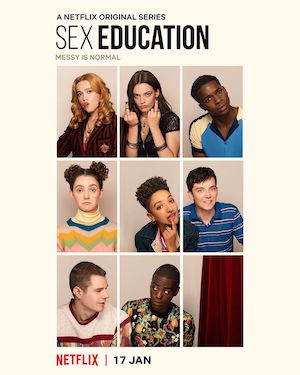
In series two, the show introduces troublemaker teenager Isaac, who has a spinal cord injury. The character is not defined by his disability but is instead charmingly sarcastic and unembarrassed.
Sex Education cast and production
Isaac is played by disabled actor George Robinson, who himself acquired a spinal cord injury while playing rugby aged 17.
There was also disability representation behind the scenes as comedian, actress and writer Rosie Jones, who has cerebral palsy, helped write the second series.
Head over to Netflix to watch the first two series of Sex Education and stay tuned for an upcoming third series coming soon.
Accessibility features on Netflix
As well as having disabled actors and characters on screen, it is also vital that streaming services are accessible to disabled audiences too.
For blind and visual impaired viewers, they require audio description (AD), which narrates the scenery, action, body language and facial expressions in a TV show or film. They also need VoiceOver/Screen Readers to read aloud the menu options on the streaming services.
Deaf and hard of hearing audiences require subtitles so they can understand the dialogue and sound effects in a TV shows and films.
Accessible features available on Netflix
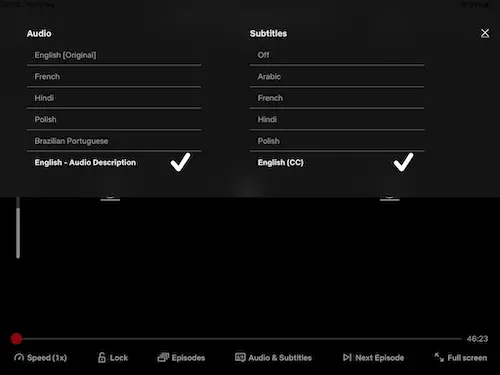
Here are the accessibility features available on Netfilx. These features may vary depending on the device you use:
- Audio description on all Netflix Originals and a proportion of other content
- Audio description category
- VoiceOver/Screen Reader access on menu
- Subtitles on a majority of Netflix content
- AD and subtitle function buttons
If you’d like to know more about accessibility features for blind and visually impaired people on streaming services, check out Emma Purcell’s blog Accessibility features on TV streaming services on Rock For Disability.
By Disability Horizons
More on Disability Horizons…
And also RJ Mitte in Breaking Bad.
I’m displeased by the number, still, of non disabled actors in roles presented here. Esp The Fundamentals film with Paul Rudd. Why? How hard would it Really have been to cast someone with Duchenne or at least another neuromuscular disorder. My 18 year old daughter wants to be an actress and is full time w/c user, having Spinal Muscular Atrophy (SMA) – under the MDA umbrella like Duchenne. These kids Need to see representation. She talks of how she wished as a kid to see Someone, Anyone like herself on tv, in movies. It Matters. It really does. And there’s No Excuse. Not when there are casting agencies and inclusivity rights being fought for.
As an actor with a neurological disorder it’s incredibly challenging to find opportunities. While it’s encouraging to see more disabled roles “portrayed” in television, movies and stage, having able bodied actors portray these roles reduces the number of opportunities for disabled actors. Disabled actors need to be able to become options for casting directors. To do that we need to have the opportunities to be in the room and to get enough reps in actual productions. This experience and preparation will allow us to become options for casting directors instead of hiring able bodied who have more experience and opportunities.